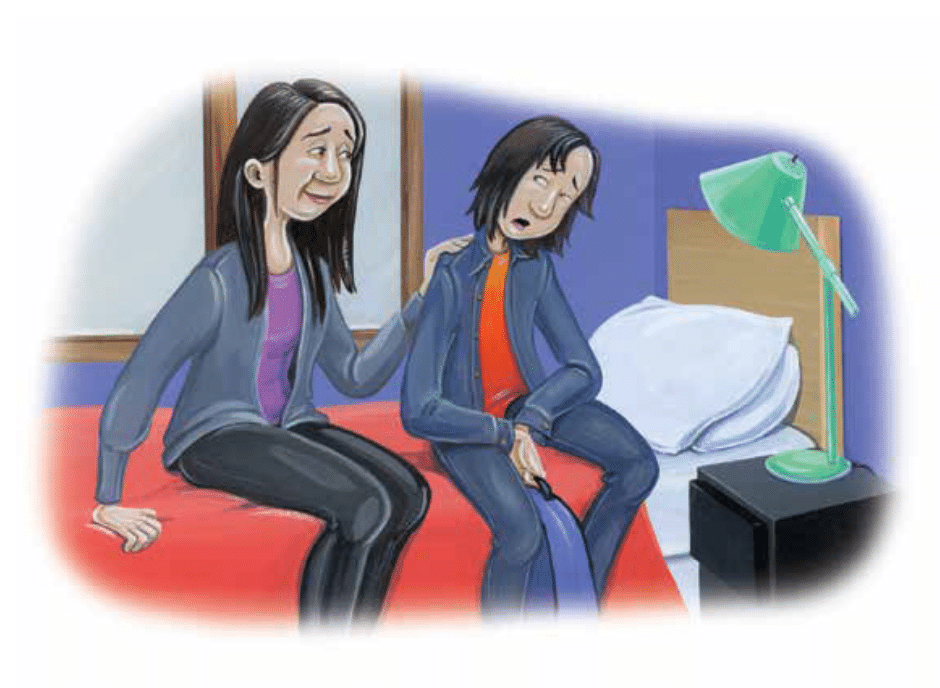Helping Your Child Deal with Rumors
Posted by Jennifer Licate, Boys Town Press Author and School Counselor on Oct 4th 2022
Your child comes home from school feeling sad, embarrassed, and angry. After probing, you find out your child has been the victim of untrue rumors being spread about him. Why is this happening? How can you support your child through this? How can your child prove something didn’t happen…when it didn’t happen? There are steps to take when dealing with rumors and gossip.
First, find out where the rumors started. Ask your
child if she knows how the rumors started? Does she know the child/ren who
started the rumors? If so, explore your child’s relationship with the child/ren
who started the rumor. Did something happen to start this rumor, either between
these children or at school?
who
started the rumors? If so, explore your child’s relationship with the child/ren
who started the rumor. Did something happen to start this rumor, either between
these children or at school?
Encourage your child to talk to the children responsible for spreading the rumor and ask them to stop. Your child can only do this if he knows who started the rumor and should only do this if he is comfortable. If the gossip is causing your child to feel vulnerable, skip this step. Another negative peer interaction will only increase your child’s heartache. However, if your child knows the source of the rumors and feels comfortable confronting these children, a simple statement, such as, “you know it’s not true, stop,” can be powerful. Self-advocacy is a valuable experience because it teaches children how to stand up for themselves and raises self-esteem.
Contact the school and make them aware of the rumors. Depending on the severity of the rumors and the age of your child, the school may be able to intervene. If the rumors were spread online, be sure to take screenshots and bring this evidence to the school. Many schools have policies against this. If the rumors are serious enough, administrators can issue consequences and contact the necessary parents, to make them aware. School counselors and/or teachers can meet with the involved students to mediate the situation. Even if the rumor is relatively mild (although hurtful) it’s good for the school to be aware so they can listen for opportunities to intervene and can avoid grouping your child with students who are targeting her.
Your child should not give the rumor mill any fuel. Even though it’s hard when others are being cruel, it’s best for your child to rise above it. Advise your child to keep his composure and simply state the rumors are not true. Tell your child he should not overly explain himself or retaliate by starting rumors about these gossiping peers. This could backfire by giving the children even more information to gossip about.
Help your child learn a lesson from the rumor. Did your child share something personal that started the rumor? Sadly, sometimes children learn the most impactful lessons through negative experiences. Be empathetic toward your child. Tell her it’s important to have close friendships, but she should take her time and be very selective before sharing private information.
For a relevant and realistic story on the effects and lessons of rumors, check out Why Is He Spreading Rumors about Me? by Jennifer Licate.
Pay close attention to your child’s mental health. Not all children will be able to brush off a rumor and wait for it to pass. Rumors can be very damaging and have a negative toll on your child’s sense of self. Encourage your child to continue to talk to you about his school day and the rumor. If you notice the situation is not improving or your child’s mental health is deteriorating, contact a therapist to support your child through this difficult time. In addition, give your child resources. Some cities or towns offer a safe teen talk like. There are also resources that are serviced 24/7 by trained counselors such as Boys Town’s YourLifeYourVoice.org, or the Boys Town National Hotline at 1-800-448-3000. These resources will help your child get support when he is feeling overwhelmed or stressed.Most importantly, if your child makes any suicidal statements, call 9-8-8, which is the National Suicide and Crisis Lifeline. This is a toll-free hotline to anyone who is in suicidal crisis or emotional distress.
